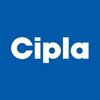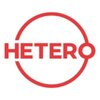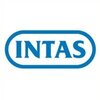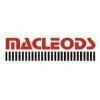Filter interviews by
Indoco Remedies Interview Questions and Answers
33 Interview questions
Handled market complaints by implementing effective communication and resolution strategies to enhance customer satisfaction.
Established a dedicated complaint handling team to address issues promptly.
Utilized a ticketing system to track complaints and ensure timely follow-up.
Conducted root cause analysis for recurring complaints, leading to process improvements.
Collaborated with production and quality teams to res...
I expect a competitive salary that reflects my skills and experience in production management.
Research industry standards for Deputy Manager Production roles.
Consider my years of experience and relevant skills.
Example: If the market average is $70,000, I would expect a package in that range.
Include benefits and bonuses in the overall compensation package.
I have handled various machines including CNC machines, injection molding machines, and assembly line equipment, each with unique principles.
CNC Machines: Operate using computer numerical control to automate machining processes.
Injection Molding Machines: Use heat and pressure to mold plastic into desired shapes.
Assembly Line Equipment: Streamline production by automating the assembly of components.
Boilers are devices that generate steam or hot water for heating and power generation, classified by design and fuel type.
Fire-tube boilers: Hot gases pass through tubes surrounded by water (e.g., Scotch marine boiler).
Water-tube boilers: Water circulates in tubes heated by hot gases (e.g., Babcock and Wilcox boiler).
Electric boilers: Use electricity to heat water (e.g., electric steam boiler).
Condensing boilers: ...
Sales is the process of persuading potential customers to purchase products or services, creating value for both parties.
Sales involves understanding customer needs and providing solutions.
It includes building relationships and trust with clients.
Sales strategies can vary, such as direct selling, online sales, or channel partnerships.
For example, a salesperson might use social media to reach potential customers.
Ef...
Effective vendor management involves strategic selection, relationship building, performance monitoring, and continuous improvement.
Identify and evaluate potential vendors based on criteria like cost, quality, and reliability.
Establish clear communication channels to foster strong relationships and address issues promptly.
Regularly assess vendor performance through metrics such as delivery times and service qualit...
Face audits by ensuring thorough preparation, clear communication, and proactive follow-up.
Prepare by reviewing relevant documents and processes
Communicate clearly with auditors and team members
Proactively address any findings or issues identified during the audit
Provide evidence of compliance with quality standards
Follow up on any action items or recommendations from the audit
Handling failure involves accepting responsibility, learning from mistakes, staying positive, and seeking support.
Accept responsibility for the failure and avoid blaming others
Analyze the reasons for the failure and learn from the mistakes made
Stay positive and maintain a growth mindset to overcome setbacks
Seek support from colleagues, mentors, or resources to help navigate through the failure
Use failure as an opp...
A data logger is a device that records data over time for monitoring and analysis purposes.
Data loggers are used to measure and record parameters such as temperature, humidity, pressure, and light levels.
They are commonly used in industries like agriculture, food storage, transportation, and environmental monitoring.
Data loggers can be standalone devices or integrated into larger systems for data collection and an...
Data integrity refers to the accuracy, consistency, and reliability of data throughout its lifecycle.
Data integrity ensures that data remains unchanged and reliable.
It involves maintaining the accuracy and consistency of data over time.
Data integrity can be achieved through various measures such as validation, encryption, backups, and access controls.
Examples of data integrity violations include data corruption, u...
Indoco Remedies Interview Experiences
78 interviews found
I appeared for an interview in Jun 2025, where I was asked the following questions.
- Q1. Can you provide an overview of yourself and your family background?
- Ans.
I am a dedicated professional with a strong family background that values education and community service.
I grew up in a close-knit family that emphasized the importance of education; my parents were both teachers.
My father worked in the public sector, which instilled in me a sense of responsibility towards community service.
I have two siblings; my elder sister is a doctor, and my younger brother is pursuing engineerin...
- Q2. Can you elaborate on your previous experience with the projects you have managed?
- Ans.
I have managed diverse projects, focusing on team collaboration, budget management, and successful delivery within timelines.
Led a team of 10 in a software development project, resulting in a 30% increase in efficiency.
Managed a budget of $500,000 for a marketing campaign that achieved a 25% growth in customer engagement.
Implemented Agile methodologies in a project, reducing delivery time by 15% and improving team comm...
- Q3. How did you increase Overall Equipment Effectiveness (OEE) in your previous company?
- Ans.
I implemented targeted strategies to enhance OEE through process optimization, training, and maintenance improvements.
Conducted a thorough analysis of production data to identify bottlenecks, leading to a 15% increase in throughput.
Implemented a preventive maintenance schedule that reduced equipment downtime by 20%, ensuring machines were always operational.
Trained staff on best practices for equipment handling, which ...
- Q4. Are you capable of handling any market-related complaints?
- Ans.
Yes, I am capable of handling market-related complaints through effective communication and problem-solving skills.
Active Listening: I ensure I fully understand the customer's concerns by listening attentively and asking clarifying questions.
Empathy: I acknowledge the customer's feelings and show understanding, which helps in diffusing tense situations.
Problem-Solving: I analyze the complaint and provide practical solu...
- Q5. What motivated you to leave your previous organization and join Indoco Remedies?
- Q6. How do you handle union employees?
- Ans.
I prioritize open communication, respect, and collaboration to effectively manage union employees and foster a positive work environment.
Establish regular communication channels, such as monthly meetings, to address concerns and updates.
Foster a collaborative environment by involving union representatives in decision-making processes.
Ensure compliance with union agreements and labor laws to maintain trust and avoid con...
- Q7. How do you control the RIGHT FIRST TIME (RFT) during working?
- Ans.
Ensuring Right First Time (RFT) involves proactive measures, continuous monitoring, and effective communication to minimize errors.
Implement standard operating procedures (SOPs) to guide processes and reduce variability.
Conduct regular training sessions for staff to ensure they understand their roles and responsibilities.
Utilize checklists to verify that all steps are completed correctly before finalizing tasks.
Encoura...
- Q8. What is the duration of your notice period?
- Ans.
My notice period is 30 days, allowing for a smooth transition and handover of responsibilities.
Standard notice period in my current role is 30 days.
This duration allows me to complete ongoing projects.
I will ensure a thorough handover to my successor.
I can negotiate a shorter notice if necessary.
- Q9. What interests you about Indoco?
- Q10. What packing line machines have you handled, and could you elaborate on their principles of operation?
- Ans.
I have experience with various packing line machines, including fillers, sealers, and labelers, each with unique operational principles.
Filling Machines: Operate by dispensing a precise volume of product into containers, using gravity, pressure, or vacuum methods.
Sealing Machines: Utilize heat, pressure, or adhesive to securely close packages, ensuring product integrity and shelf life.
Labeling Machines: Apply labels to...
Interview Preparation Tips
I appeared for an interview in May 2025, where I was asked the following questions.
- Q1. About family background and education with experience with job responsibilities
- Q2. Which machine you have handled and tell about their working principle
- Ans.
I have handled various machines including CNC machines, injection molding machines, and assembly line equipment, each with unique principles.
CNC Machines: Operate using computer numerical control to automate machining processes.
Injection Molding Machines: Use heat and pressure to mold plastic into desired shapes.
Assembly Line Equipment: Streamline production by automating the assembly of components.
- Q3. Which project's done in previous company
- Ans.
Led a project to optimize production processes, reducing waste and improving efficiency in manufacturing operations.
Implemented Lean Manufacturing principles, resulting in a 20% reduction in production costs.
Developed a new scheduling system that improved on-time delivery rates by 15%.
Collaborated with cross-functional teams to enhance product quality, leading to a 30% decrease in defects.
Conducted training sessions fo...
- Q4. How OEE improve in previous company
- Ans.
Improved OEE through targeted strategies, employee training, and equipment upgrades led to enhanced production efficiency.
Conducted root cause analysis to identify downtime issues, leading to a 15% reduction in unplanned downtime.
Implemented a preventive maintenance schedule that increased equipment availability by 20%.
Trained operators on best practices, resulting in a 10% increase in production speed.
Utilized data an...
- Q5. Why interested in Indoco and why quite previous company
- Q6. How much you payment expected from existing package
- Ans.
I expect a competitive salary that reflects my skills and experience in production management.
Research industry standards for Deputy Manager Production roles.
Consider my years of experience and relevant skills.
Example: If the market average is $70,000, I would expect a package in that range.
Include benefits and bonuses in the overall compensation package.
- Q7. Which products you have manufacturing for validation process
- Q8. Any market complaint handling in previous company
- Ans.
Handled market complaints by implementing effective communication and resolution strategies to enhance customer satisfaction.
Established a dedicated complaint handling team to address issues promptly.
Utilized a ticketing system to track complaints and ensure timely follow-up.
Conducted root cause analysis for recurring complaints, leading to process improvements.
Collaborated with production and quality teams to resolve ...
- Q9. How much notice period
- Q10. How handled the production plan and union employees
- Ans.
I effectively managed production plans while fostering positive relations with union employees through communication and collaboration.
Developed a detailed production schedule that aligned with union agreements, ensuring compliance with labor laws.
Held regular meetings with union representatives to discuss production goals and address any concerns.
Implemented a feedback system for employees to voice their opinions on p...
Interview Preparation Tips
I appeared for an interview in Aug 2024.
(3 Questions)
- Q1. Tell me about yourself.
- Q2. What was your role in your previous company?
- Ans.
I was responsible for leading a team of analysts to develop and implement data-driven strategies to improve operational efficiency.
Led a team of analysts in developing data-driven strategies
Implemented strategies to improve operational efficiency
Collaborated with cross-functional teams to achieve company goals
- Q3. I was an officer in water system
(2 Questions)
- Q1. What are your salary expectations?
- Ans.
I am looking for a competitive salary that reflects my experience and skills.
Research industry standards for Senior Officer salaries
Consider my years of experience and level of expertise
Be prepared to negotiate based on benefits and opportunities for growth
- Q2. Why are you expecting such a high salary?
- Ans.
I have extensive experience, skills, and qualifications that justify a higher salary.
I have a proven track record of success in my previous roles.
I possess specialized skills and certifications that are in high demand.
I have a strong educational background and relevant work experience.
I have consistently exceeded performance expectations and contributed significantly to the success of my previous employers.
Interview Preparation Tips
I appeared for an interview in May 2025, where I was asked the following questions.
- Q1. About your job profile
- Q2. Prepare the all about everything about job profile.
I appeared for an interview in Mar 2025, where I was asked the following questions.
- Q1. What is sales
- Ans.
Sales is the process of persuading potential customers to purchase products or services, creating value for both parties.
Sales involves understanding customer needs and providing solutions.
It includes building relationships and trust with clients.
Sales strategies can vary, such as direct selling, online sales, or channel partnerships.
For example, a salesperson might use social media to reach potential customers.
Effecti...
- Q2. What is otc .
Interview Preparation Tips
I applied via Job Fair and was interviewed in Apr 2024. There was 1 interview round.
(3 Questions)
- Q1. Did you known any indoco production employees how work for more than 5 year.
- Ans.
Yes, I know several indoco production employees who have worked for more than 5 years.
Yes, I know employees who have been with the company for over 10 years.
Some of them have received promotions during their time at Indoco Production.
They have a strong knowledge of the company's processes and procedures.
These long-term employees are often seen as valuable assets to the company.
- Q2. Which person did you like work with indoco who work mote than 5 year.
- Ans.
I enjoyed working with Sarah, who has been with the company for over 5 years.
Sarah has a wealth of experience and knowledge in the industry.
She is a great team player and always willing to help others.
Sarah's dedication and commitment to her work are truly admirable.
- Q3. Which current employee did you like to fire from indoco.
- Ans.
I cannot disclose specific employee names for legal and ethical reasons.
I believe in handling personnel matters professionally and respectfully.
I focus on improving team dynamics and performance rather than removing individuals.
I prioritize open communication and constructive feedback to address any issues.
I adhere to company policies and procedures when addressing employee performance concerns.
Interview Preparation Tips
- Politics
(2 Questions)
- Q1. Please tell me about yourself and your education qualification
- Ans.
I am a dedicated Quality Assurance Officer with a Bachelor's degree in Quality Management and 5 years of experience in ensuring product quality.
Bachelor's degree in Quality Management
5 years of experience in Quality Assurance
Skilled in conducting quality audits and implementing corrective actions
- Q2. Asked me about my knowledge
Interview Preparation Tips
(2 Questions)
- Q1. What is your expertise
- Q2. Why should we hire you
(2 Questions)
- Q1. Why are you leaving current job
- Q2. What are your expected from new employer
Interview Preparation Tips
I applied via Walk-in and was interviewed in Mar 2024. There were 2 interview rounds.
(2 Questions)
- Q1. Selection of die ,Aql,alc,ccp,cqa, stratified sampling,data integrity,GMP,GDP etc
- Q2. Stratified sampling
(2 Questions)
- Q1. Self introduction
- Q2. Personal profile previous experience etc
Interview Preparation Tips
I appeared for an interview in Nov 2024, where I was asked the following questions.
- Q1. Analytical knowledge
- Q2. Why we hire u
- Ans.
I bring a unique blend of leadership, strategic vision, and proven results that align with your organization's goals.
Proven Leadership: I have successfully led cross-functional teams to achieve ambitious targets, such as increasing revenue by 30% in my previous role.
Strategic Vision: I excel at developing long-term strategies that align with company objectives, demonstrated by my initiative that expanded market share b...
Interview Preparation Tips
Top trending discussions






Indoco Remedies Interview FAQs
The duration of Indoco Remedies interview process can vary, but typically it takes about less than 2 weeks to complete.
Tell us how to improve this page.
Indoco Remedies Interviews By Designations
- Indoco Remedies Senior Officer Interview Questions
- Indoco Remedies Medical Representative Interview Questions
- Indoco Remedies Quality Assurance Officer Interview Questions
- Indoco Remedies Area Business Manager Interview Questions
- Indoco Remedies Production Officer Interview Questions
- Indoco Remedies Area Sales Manager Interview Questions
- Indoco Remedies QA Officer Interview Questions
- Indoco Remedies Divisional Sales Manager Interview Questions
- Show more
Interview Questions for Popular Designations
- Senior Officer Interview Questions
- Medical Representative Interview Questions
- Quality Assurance Officer Interview Questions
- Software Engineer Interview Questions
- Consultant Interview Questions
- Associate Software Engineer Interview Questions
- Graduate Engineer Trainee (Get) Interview Questions
- Accountant Interview Questions
- Show more
Overall Interview Experience Rating
based on 83 interview experiences
Difficulty level
Duration
Interview Questions from Similar Companies
Indoco Remedies Reviews and Ratings
based on 1.2k reviews
Rating in categories
|
Officer
436
salaries
| ₹1.9 L/yr - ₹5.3 L/yr |
|
Senior Officer
422
salaries
| ₹3.3 L/yr - ₹7.6 L/yr |
|
Junior Officer
297
salaries
| ₹1.6 L/yr - ₹4.2 L/yr |
|
Production Officer
194
salaries
| ₹1.9 L/yr - ₹5.6 L/yr |
|
Executive
163
salaries
| ₹4.5 L/yr - ₹9.8 L/yr |

Cipla

Dr. Reddy's

Lupin

Zydus Lifesciences
- Home >
- Interviews >
- Indoco Remedies Interview Questions













